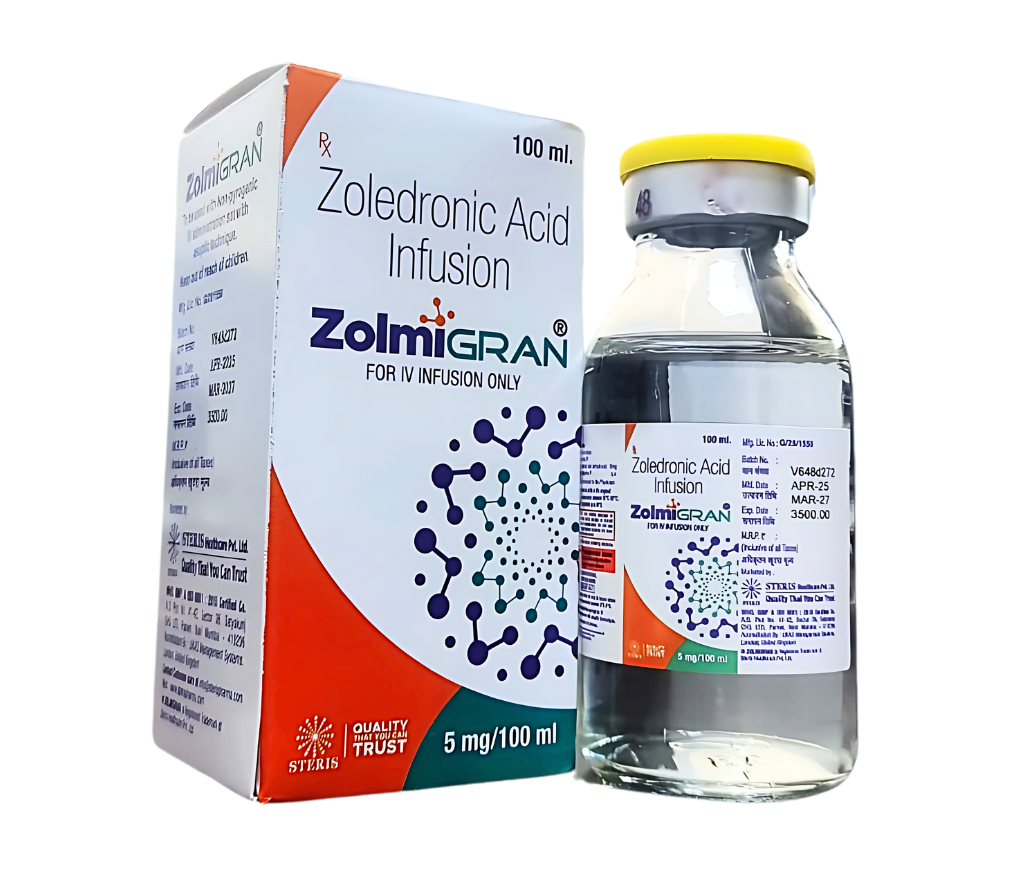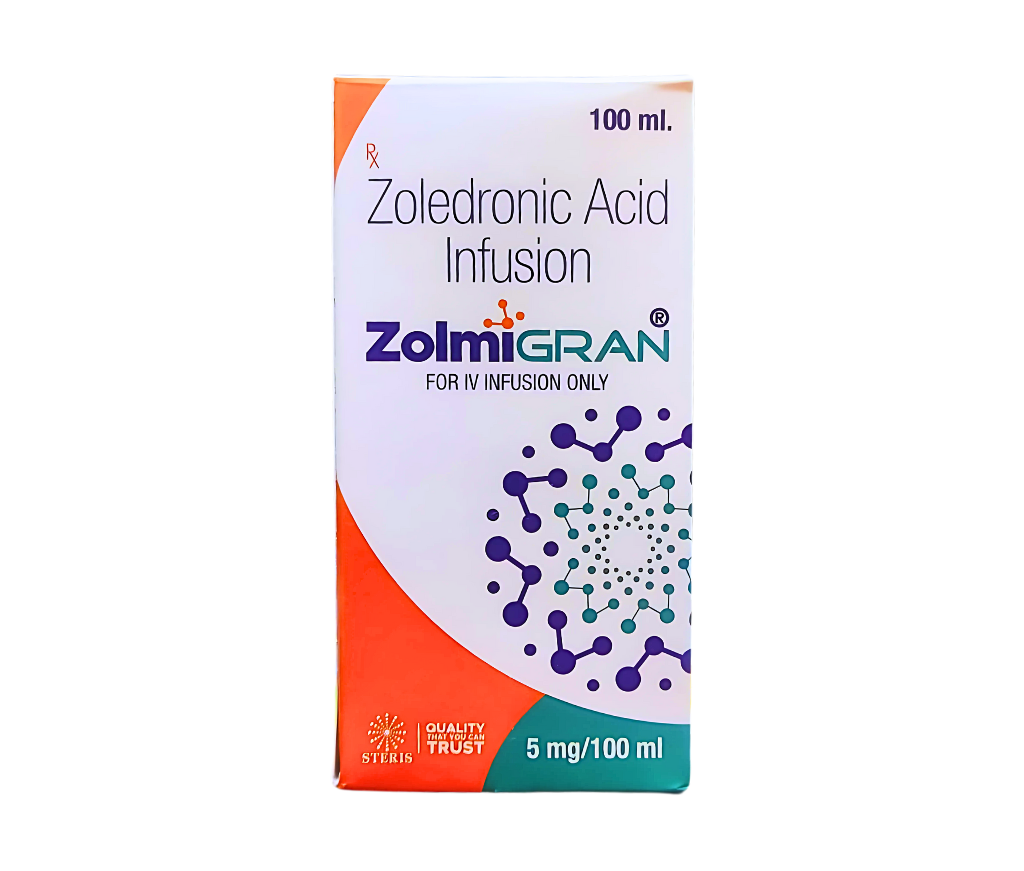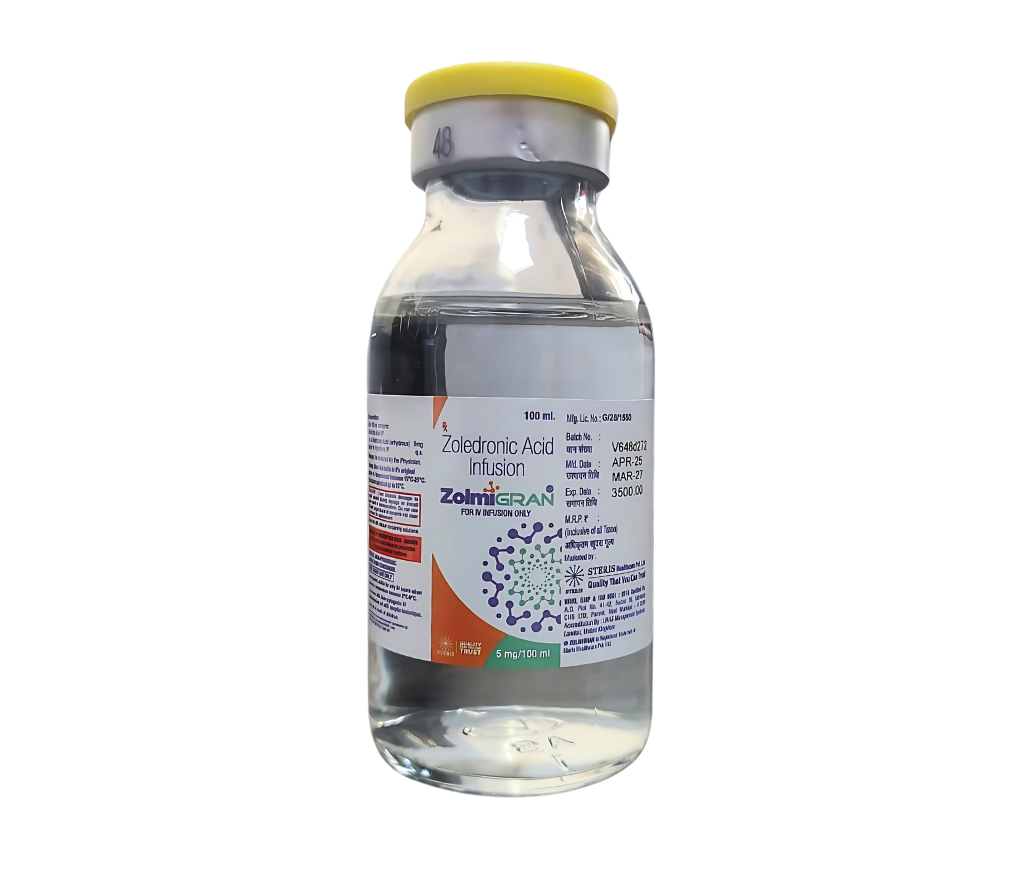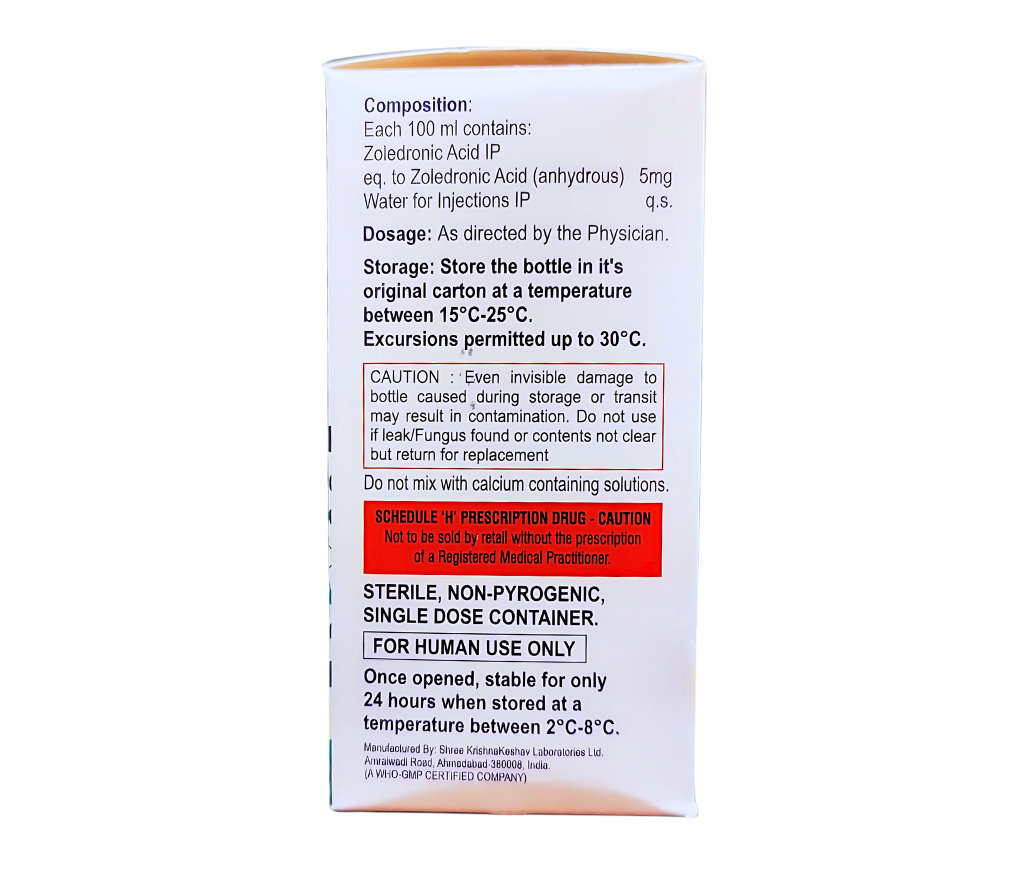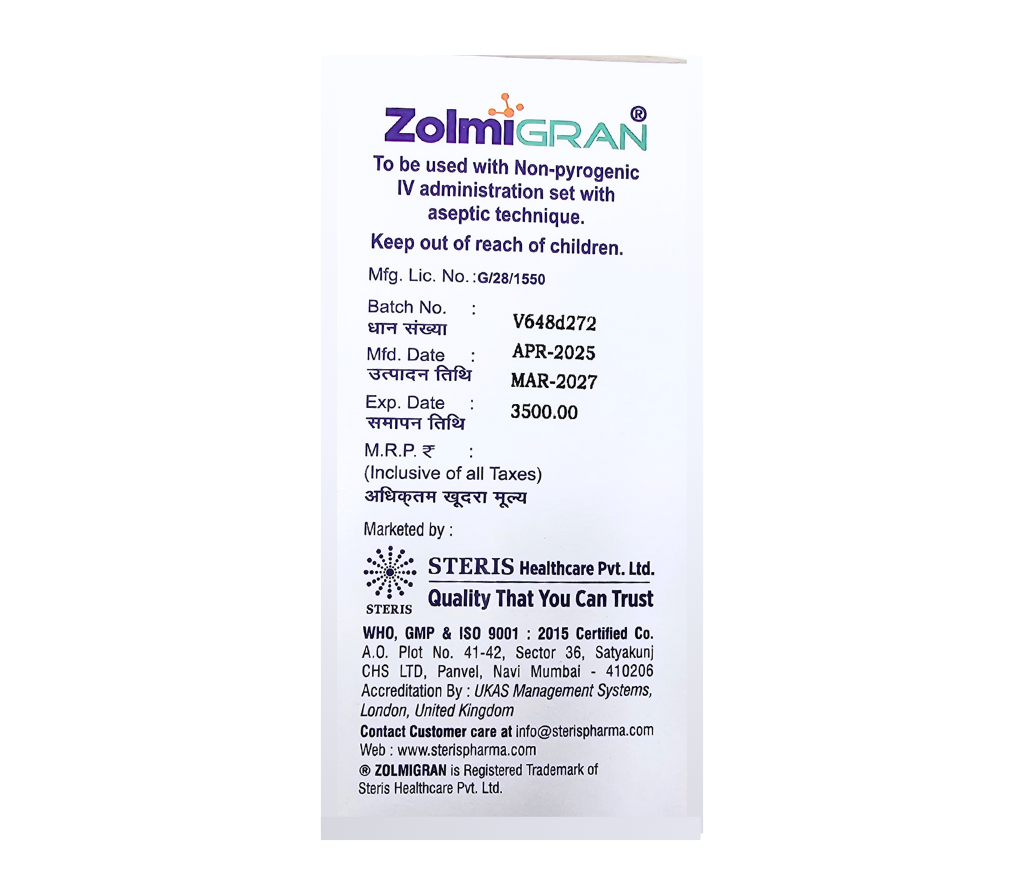ZOLMIGRAN
Item requires a valid prescription
Manufactured By Steris Healthcare Pvt Ltd
Composition zoledronic acid injection
Rs 2450.00
MRP Rs 3500.00
(30% OFF)
Includes all taxes
Package SIZE
( FOR 100 ML )
100% Authentic
Products
Free
Shipping*
Products
Return Policy
Description:
Zoledronic Acid Injection is a prescription medication used to treat and prevent a range of serious bone conditions. It belongs to the class of bisphosphonates and is primarily indicated for the treatment of osteoporosis, Paget’s disease of bone, and bone complications associated with cancer such as bone metastases and hypercalcemia of malignancy. Designed for intravenous use, this powerful injection helps in increasing bone density and reducing the risk of fractures, especially in postmenopausal women and cancer patients.
This injection works by slowing down bone resorption – the process by which bone is broken down – allowing bones to remain stronger and healthier for a longer duration. Zoledronic Acid Injection is often administered once a year or at medically recommended intervals, making it a convenient and long-lasting treatment option.
Manufactured under strict quality standards, this injection offers effective, targeted therapy with long-lasting results. It is typically used under medical supervision in hospitals or clinics, ensuring safe and controlled administration. It helps improve the quality of life in patients suffering from conditions that weaken the bones and cause calcium imbalances.
Key Benefits of Zoledronic Acid Injection:
-
Strengthens bones and reduces fracture risk
-
Treats high blood calcium levels caused by cancer
-
Supports bone health in patients with metastasized cancer
-
Once-yearly dosage for osteoporosis management
How Does Zoledronic Acid Injection Work?
Zoledronic Acid Injection belongs to a class of medications called bisphosphonates, which are specifically formulated to treat bone-related disorders by regulating bone metabolism. The primary mechanism of action involves inhibiting osteoclast activity — the cells responsible for breaking down bone tissue. In healthy individuals, bone remodeling is a natural balance between bone formation and resorption. However, in conditions like osteoporosis, Paget’s disease, or bone metastases, this balance is disrupted, leading to excessive bone loss.
Zoledronic acid binds tightly to the bone mineral matrix and stays there for extended periods. When osteoclasts try to break down bone tissue, they also absorb zoledronic acid, which in turn disrupts their function and leads to their apoptosis (cell death). This reduces further bone loss, helps maintain bone density, and lowers the risk of fractures — particularly in elderly individuals and cancer patients.
In cases of hypercalcemia of malignancy (HCM) — where cancer causes dangerously high calcium levels in the blood — Zoledronic Acid helps reduce calcium release from bones, thus restoring normal levels and improving patient outcomes.
What makes Zoledronic Acid unique is its long-acting effect. A single dose can offer therapeutic benefit for up to a year, making it a highly convenient option for patients who cannot maintain daily or weekly bone medications.
Side Effects of Zoledronic Acid Injection
While Zoledronic Acid Injection is generally well-tolerated, like all medications, it may cause side effects in some individuals. These side effects can range from mild and temporary to more serious, requiring medical attention.
Common Side Effects:
-
Fever or flu-like symptoms shortly after the infusion
-
Muscle pain or joint stiffness
-
Fatigue and general weakness
-
Nausea, vomiting, or stomach pain
-
Headache
These symptoms often appear within 1–3 days of receiving the injection and typically resolve on their own. Taking acetaminophen or ibuprofen can help manage mild reactions.
Less Common but Serious Side Effects:
-
Low calcium levels (hypocalcemia), especially in those with vitamin D deficiency
-
Kidney function changes or renal impairment (more common in patients with pre-existing kidney disease)
-
Osteonecrosis of the jaw (rare, but serious — usually in cancer patients receiving high doses)
-
Allergic reactions like skin rashes, itching, or breathing difficulty (rare)
-
Eye inflammation or blurred vision
To reduce the risk of complications, it is important that the injection be administered under medical supervision. Patients are advised to undergo kidney function tests and calcium level assessments before treatment. Adequate hydration before the infusion and ensuring proper calcium and vitamin D intake can also minimize risks.

